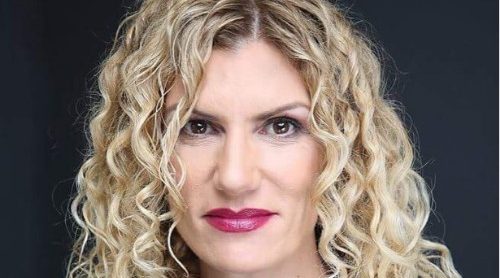Chana Chiesa is a proud graduate of California State University, Long Beach, where she earned her Bachelor’s degree in Human Development, graduating magna cum laude. Her journey has been defined by a deep passion for understanding human growth and applying this knowledge to make a positive impact on society. Chana has been honored with the Alice Hurst “Visionary” Award for her leadership, compassion, and academic excellence. Her work spans research and community service, including significant projects like the Iranian Street Kids Resilience Project and leadership roles in the WECAN Coalition and the Children’s Needs Task Force. She is committed to using her skills to foster resilience and well-being in children and communities, embodying the values of empathy, determination, and service.
How did your background in Human Development influence your approach to community service?
My background in Human Development has been instrumental in shaping my approach to community service. Understanding the various stages of human growth and the factors that influence well-being has given me a unique perspective on how to address the needs of different populations. It has taught me the importance of evidence-based interventions and the value of a holistic approach. For instance, when working with the WECAN Coalition, I drew upon my knowledge of developmental psychology to design programs that support both the immediate and long-term needs of children and families. This comprehensive approach ensures that our interventions are not just reactive but also preventive and supportive of overall development.
What was a pivotal moment in your career that reinforced your commitment to child welfare?
A pivotal moment in my career was during my involvement in the Iranian Street Kids Resilience Project. One day, while conducting field research, I met a young girl who had faced incredible adversity but still exhibited remarkable resilience. Her strength and optimism despite her circumstances deeply moved me. This experience reinforced my commitment to child welfare, as I saw firsthand the impact that targeted support and intervention can have on a child’s life. It made me realize the importance of our work and motivated me to continue advocating for and supporting vulnerable children.
How do you balance your academic research with your community service commitments?
Balancing academic research with community service commitments requires meticulous time management and a clear sense of priorities. I start by setting realistic goals for both areas and ensuring that they align with my overall mission. I also integrate my research into my community work whenever possible. For example, insights from my studies on resilience and child development directly inform the programs and initiatives I help design and implement in the community. This synergy between research and practice not only enhances the quality of my work but also ensures that my academic pursuits have real-world applications.
Can you share an example of a successful initiative you led in your community work?
One successful initiative I led was the development of a comprehensive support program for at-risk youth through the Children’s Needs Task Force in Huntington Beach. We identified key areas where these youths needed support, such as mental health services, educational resources, and safe recreational activities. By collaborating with local schools, health professionals, and community organizations, we were able to create a network of support that addressed these needs holistically. The program not only improved the immediate well-being of the participants but also set them on a path towards long-term success and stability. Seeing the positive changes in these youths’ lives has been incredibly rewarding.
How do you stay motivated and inspired in your work, especially when faced with challenges?
Staying motivated and inspired, especially in the face of challenges, comes from seeing the tangible impact of my work and the resilience of the individuals I serve. I am constantly inspired by the stories of strength and perseverance from the children and families I work with. Additionally, I make sure to surround myself with a supportive network of colleagues and mentors who share my passion for making a difference. They provide encouragement and fresh perspectives when things get tough. Practicing self-care and celebrating small victories also help maintain my motivation and energy levels.
What role do you see technology playing in the future of Human Development and community service?
Technology has the potential to revolutionize both Human Development and community service by providing new tools and platforms for research, education, and support. For example, telehealth services can make mental health support more accessible to underserved populations. Data analytics can help identify trends and needs within communities more accurately, allowing for targeted interventions. Additionally, online platforms can facilitate the sharing of resources and best practices among practitioners globally. Embracing technology while ensuring it complements our human-centered approach will be crucial in maximizing its benefits.
What advice would you give to someone just starting out in the field of Human Development?
My advice to someone starting out in the field of Human Development is to remain curious and compassionate. This field requires a deep understanding of human behavior and a commitment to improving lives. Stay open to learning from both academic research and real-world experiences. Build strong relationships with mentors and peers who can offer guidance and support. Most importantly, remember that your work has the potential to make a significant impact on individuals and communities. Stay passionate and dedicated to your mission, and don’t be afraid to take on challenges that come your way.

